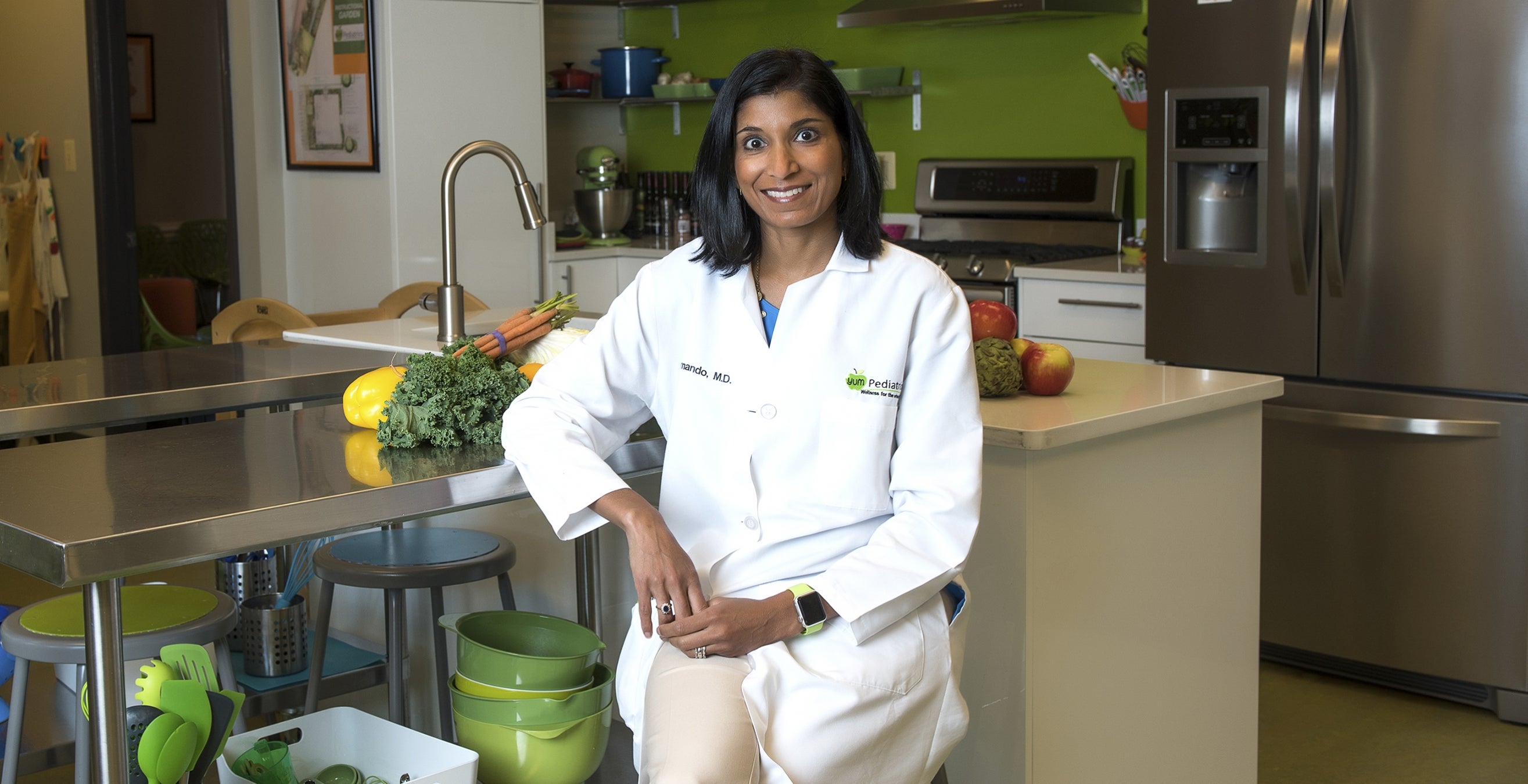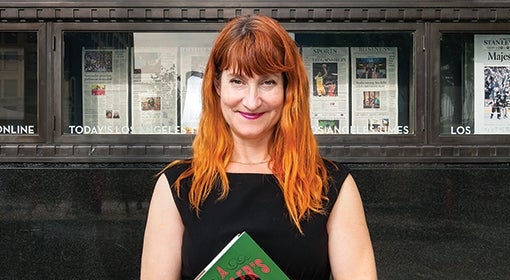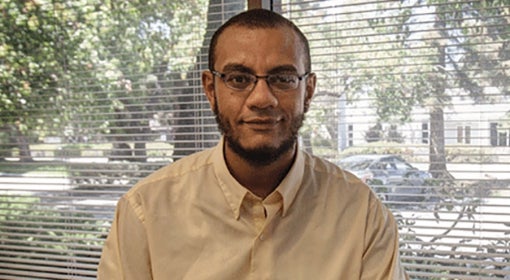A 10-year-old and his parents sit in a pediatrician’s exam room. The boy is overweight and often hyperactive. His parents are frustrated. The doctor recommends that the family improve its diet. But where to start?
Luckily this family is in the “carrot room,” one of several fruit-and-vegetable-themed exam rooms in the Fredericksburg, Va., office of Nimali Fernando, a nutrition-focused pediatrician who is known to her patients as Dr. Yum. From cooking classes in her demo kitchen using food harvested from the clinic’s garden to online instructional videos, Fernando (GSPH ’98, MED ’99) also shares resources beyond her practice through her nonprofit, the Doctor Yum Project, at doctoryum.org. She is also the coauthor of Raising a Healthy, Happy Eater: A Parent’s Handbook—A Stage-by-Stage Guide to Setting Your Child on the Path to Adventurous Eating.
What sorts of lessons are taught in the kitchen?
We try to bring in the fun of food. Our Salad Lab teaches kids how to make their own unique salad dressing. We give them mason jars, a formula, lots of different options, and they make their own salad dressing. It’s a great way to get kids excited about eating leafy green veggies.
How are children helped by healthy eating?
We often think about obesity and diet. But what made me search for a solution to the poor diet of many of my patients were digestive issues. Those I see as commonly as obesity or more commonly. Even mental health issues—like anxiety, depression, ADHD—often are intertwined with diet.
With healthy eating, who is more difficult, kids or their parents?
Parents. Absolutely. Kids are often more willing to explore than adults. Adults may have been called picky eaters their whole lives, and to undo that is really hard. Sometimes the best agents of change are children, and I find that sometimes they will go home and influence the adults to eat better.
How does gardening affect eating habits?
When you show kids how food grows, they’re engaging their senses. Before they even put kale in their mouth, they’re planting that seed and watching it grow. They pick it, wash it, and feel excited and confident about the food they grew. It can be much less difficult to convince children to eat a local heirloom tomato grown in their own backyard.
How does this work affect your own family?
I have to practice what I preach—having patience, being consistent, and understanding that eating is a developmental process every child goes through differently. My kids are at the point where they have internalized what food can do for their body, both positively and negatively. That is where I want all of my patients’ families to be—where they don’t have to police their children because they have instilled good eating habits from the beginning.
Opening image: Nimali Fernando, a.k.a Dr. Yum
This article appeared in the Winter 2017 issue of Pitt Magazine.





